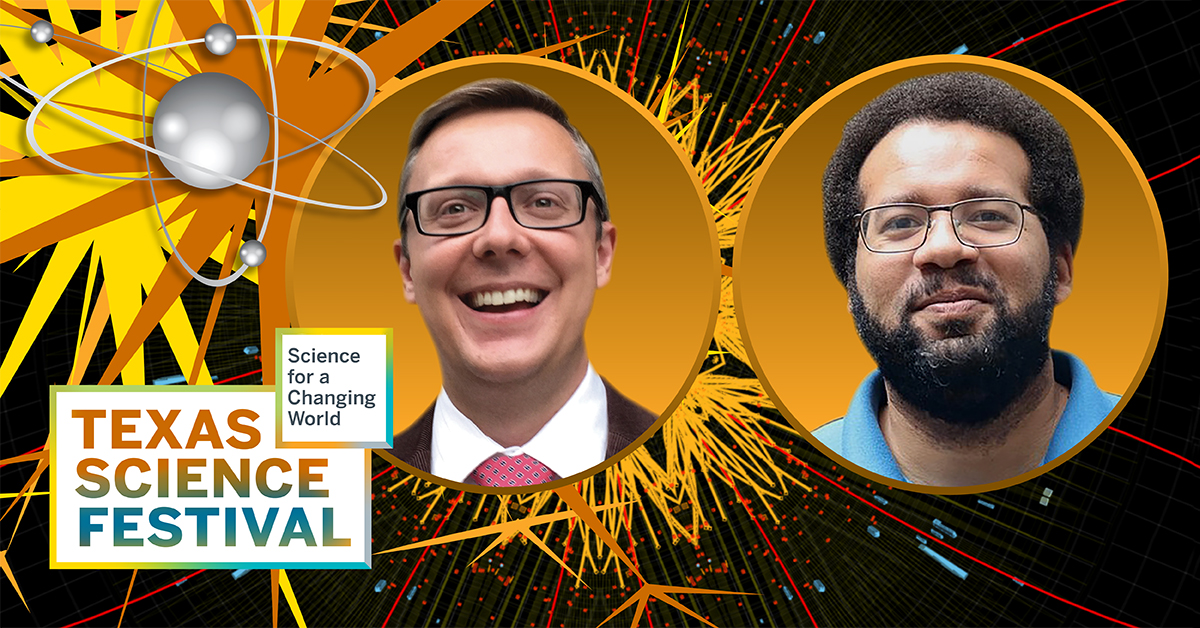Events
Thursday, March 18, 2021, 04:00pm - 04:45pm
Contact cnsdev@austin.utexas.edu
This talk is part of the Texas Science Festival (Feb. 16-Mar. 26). Click here to register and to see a schedule of all the events.

How did the universe begin, and how will it end? What is the nature of the mysterious dark matter and dark energy that make up most of the universe? What are the basic rules of physics? Two physicists describe how particle researchers use the world’s largest machine, the Large Hadron Collider, to seek answers to these important questions.
Featuring:
- Tim Andeen is an assistant professor in the Department of Physics at The University of Texas at Austin. An expert in experimental particle physics, he received his Ph.D. from Northwestern University in 2008. He then served as a fellow at CERN for two years before completing a postdoctoral fellowship at Columbia University. Throughout his career, he has been focused on ATLAS, the largest, general-purpose particle detector experiment at the Large Hadron Collider. Today, he is particularly interested in signatures with top quark decays and electronics development for the ATLAS calorimeter.
- Dr. Peter Onyisi is an associate professor in the Department of Physics at UT Austin. He studies particle physics using the Large Hadron Collider (LHC) in Geneva, Switzerland. He was among the scientists that reported evidence for the long-sought-after Higgs boson, a particle that has deep connections to the structure of fundamental physical laws and the evolution of the universe. He has continued to work with the LHC, conducting experiments to investigate electroweak symmetry breaking and to search for new particles and interactions. He received his Ph.D. from Cornell University and B.A. from the University of Chicago.
Location: https://sciencefest.utexas.edu














